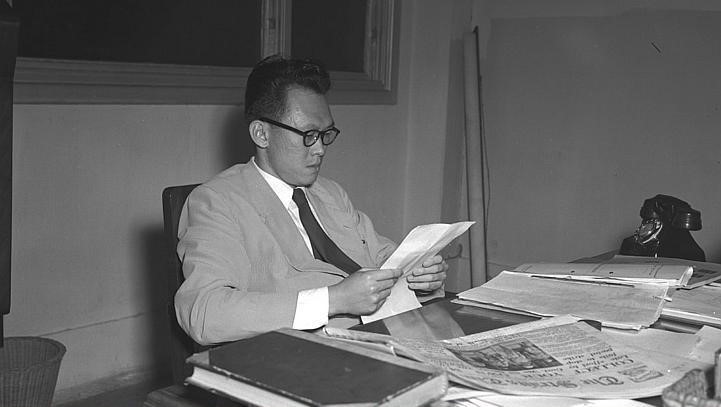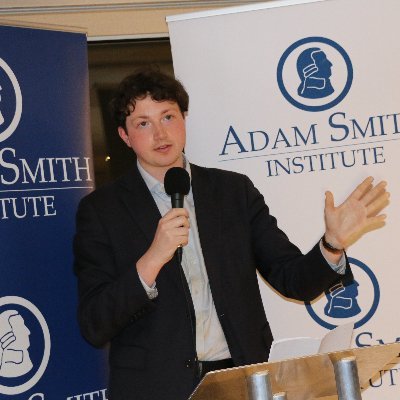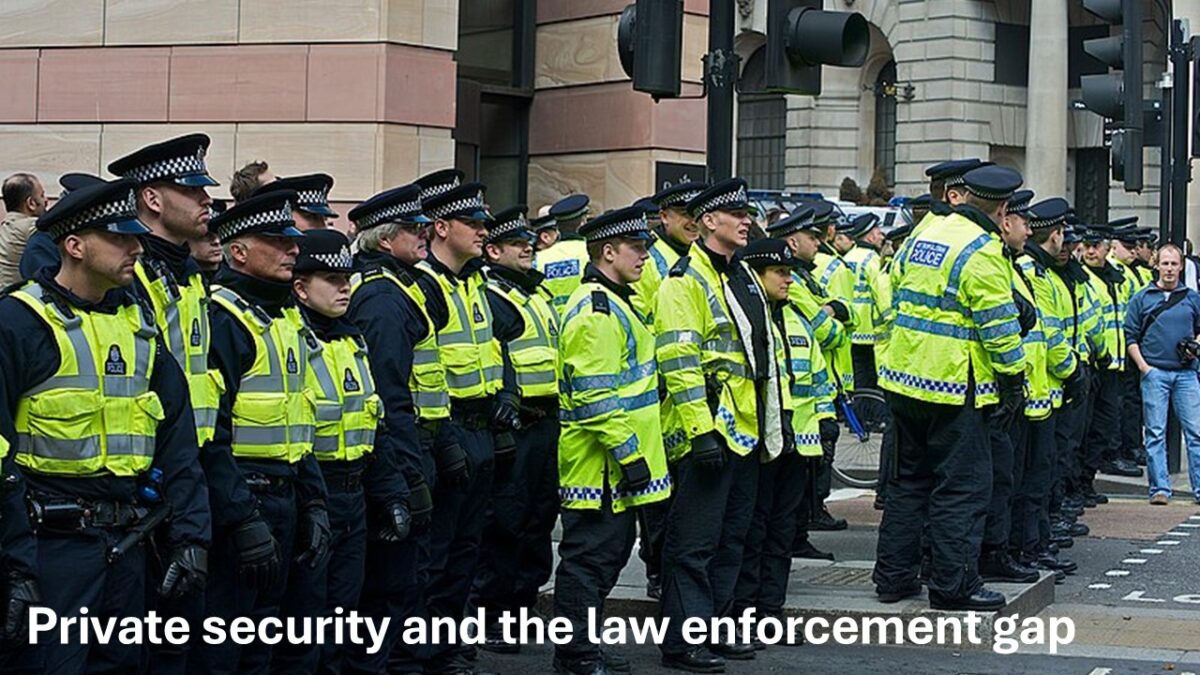Sam Bidwell writes on the UK’s law enforcement crisis – and the signs that private security is emerging to fill the gap.
“In 2022, 89.2% of bike theft cases across England went unsolved, rising to 93% of thefts in London”
Alongside defence and border security, maintaining law and order is one of the first duties of any state – but in the UK today, many laws are just not being enforced. When we talk about law and order in the UK, we often talk about a few distinct but related issues: – softening of the law around some crimes
- soft sentences
- inaccurate data reporting
- generalised disorder
- non-enforcement of the law
I want to focus on the latter.
In May 2024, London’s Met Police announced that it would no longer be policing fare evasion on London buses. “Since this incident happened, we have stopped our involvement in supporting Transport for London fare evasion operations.” December 2023 research revealed that the Met Police attended just 44% of shoplifting reports between April 2022 and April 2023 – the rate has not been above 50% since 2018.
“police failed to solve a single burglary over the past three years in half of neighbourhoods in England and Wales”
In 2022-23, Home Office statistics show that the Met Police failed to solve 82 percent of burglaries in London. Just 8 percent of London burglaries during this period resulted in a suspect being charged or summoned – we can assume that the conviction rate is even lower. In 2022, 89.2% of bike theft cases across England went unsolved, rising to 93% of thefts in London. In Surrey, just 0.81% of bike theft cases resulted in a suspect being charged.
According to March 2024 research, police failed to solve a single burglary over the past three years in half of neighbourhoods in England and Wales. This comes despite an October 2022 promise from all 43 police chiefs across England and Wales to “attend every break-in”.
In 2023, police failed to attend 72 percent of car thefts – an increase of 32 percent since 2021. In Cambridgeshire, a full 90 percent of car thefts reports were not attended by an officer – in Bedfordshire that figure was 88 percent.
“the Co-op has reported that assaults on staff have increased by almost 30 percent, with 20 percent more anti-social behaviour and verbal abuse”
The police’s own data shows that, as of 2023, around 90 percent of all crime goes unsolved, rising from around 75 percent in 2015. This figure includes more than 30,000 sex offences, 330,000 violent crimes, 320,000 cases of criminal damage, and 1.5 million thefts.
According to February 2024 research, police failed to attend 40 percent of violent shoplifting incidents in 2023. This comes as the Co-op has reported that assaults on staff have increased by almost 30 percent, with 20 percent more anti-social behaviour and verbal abuse.
“The police are no longer consistently enforcing the law – particularly in cases of property crime, but increasingly in terms of low-level violent crime too”
Finally, across London, 250 phones a day are stolen – one every six minutes. In theory, the Met Police’s ‘Operation Venice’ is designed to crack down on phone snatching – but there’s no public information about the current state of that operation. Pulling together these individual data points, what do we see? The police are no longer consistently enforcing the law – particularly in cases of property crime, but increasingly in terms of low-level violent crime too. This isn’t just a London problem, either.
This is especially audacious given the efforts made by police in recent weeks to crack down on ‘hate speech’ and improper political activism. They don’t have the resources to protect businesses from theft, but they do have the resources to put people in jail for sharing memes.
This leaves ordinary people subject to the tyranny of criminality – criminal disorder is just as tyrannical as any overbearing state. One of the results of this is a rise in private security use, particularly from businesses who know that they can no longer rely on the police.
“According to the British Security Industry Association (BSIA), the UK will need 62,000 new security officers over the next 12 months to keep up with growing demand”
My Local Bobby, a security firm established by two former Met Police officers, served 12 residential areas and four “public realm beats” as of May 2023, with a focus on property crime. Households pay around £100 to £200 a month for this additional protection.
According to the British Security Industry Association (BSIA), the UK will need 62,000 new security officers over the next 12 months to keep up with growing demand. BSIA estimates that a total of 450,000 licensed security professionals could be in operation by the end of 2024.
In a January 2024 poll, 6 in 10 UK adults trust private security professionals, while 7 in 10 say that private security professionals are necessary to maintain public order. An April 2024 poll, on the other hand, showed that just 4 in 10 Britons trust the police. In the absence of a capable state police force, many businesses – and some individuals – are turning to private provision. Let me be clear – this is not a good thing! The expanding role of private security is a sign of withering state capacity.
“The early warning signs are there – including the growth in private security and the rise of gated and quasi-gated communities”
In countries where disorder is common – like South Africa, Nigeria, or Brazil -, private security is a fact of life. Nevertheless, these private security firms often operate under strict regulatory conditions, even while the state’s policing capacity continues to decline.
While Britain’s situation is not nearly as severe as Brazil or South Africa, we are experiencing a decline in law and order. The early warning signs are there – including the growth in private security and the rise of gated and quasi-gated communities.
We must resource our police force properly, enabling them to enforce the law consistently. Even John Cowperthwaite, Hong Kong’s famously laissez-faire Financial Secretary, understood the importance of a police force able to enforce order and protect property.

“The hard realities of keeping the peace between man and man and between authority and the individual can be more accurately described if the phrase were inverted to “order and law”, for without order the operation of law is impossible.” – Lee Kuan Yew, 1963

Reproduced with kind permission of Sam Bidwell, Director of the Next Generation Centre at the Adam Smith Institute, Associate Fellow at the Henry Jackson Society, although views are his own. Sam can be found on X/Twitter, on Substack, and can be contacted at s.bidwell.gb@gmail.com. This article was originally published as a X/Twitter Thread at https://x.com/sam_bidwell/status/1824079066804146582.
Main image: Southbanksteve, CC BY-SA 2.0 <https://creativecommons.org/licenses/by-sa/2.0>, via Wikimedia Commons

